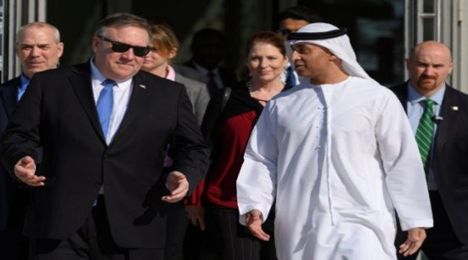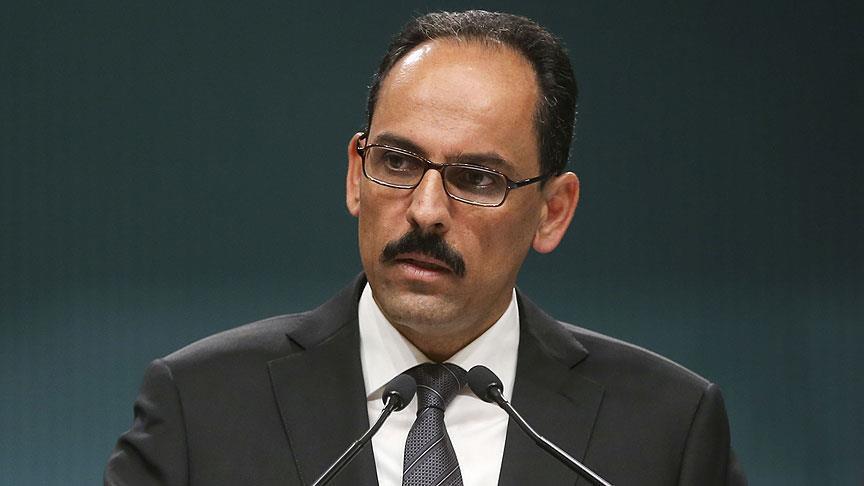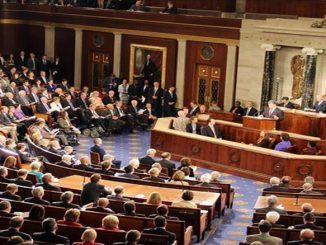
A new Quincy Institute report examines one of the largest and most well financed foreign influence operations inside the United States.
UAE meddling in U.S. politics is now a national security concern, according to a classified report compiled by U.S. intelligence officials and briefed to policymakers in Congress and the executive branch, says Ben Freeman in a piece published on Responsible Statecraft.
While the report remains classified to the public, the UAE’s attempts to illegally meddle in U.S. politics and elections, however, have made front page headlines for years — including a scheme to illegally funnel millions of dollars into the campaigns of Donald Trump and Hillary Clinton during the 2016 presidential election and a multi-million dollar covert campaign to vilify the UAE’s rival Qatar in Washington.
A new Quincy Institute brief that I authored, “The Emirati Lobby in America,” lifts the veil on the UAE’s legal lobbying and influence operations in America. The brief shows how this extraordinarily well funded collection of some of the most influential lobbying and public relations firms in America has worked to influence members of Congress, the executive branch, the media, think tanks, and others to shape critical U.S. foreign policy decisions in the Middle East.
At the heart of the UAE’s legal influence in America is the Emirati lobby — the more than two dozen firms registered under the Foreign Agents Registration Act (FARA) to do the bidding of Emirati interests in the United States. In just the two years the brief analyzed — 2020 and 2021 — the Emirati lobby reported more than 10,000 political activities on behalf of their Emirati clients, including emailing, calling, and meeting members of Congress and their staff more than 7,000 times. This extraordinary influence undertaking was designed to steer several key U.S. foreign policy decisions that would expand U.S. military entanglements in the region.
Peace Through Arms Sales
The Abraham Accords — which ultimately led to the normalization of relations between Israel and the UAE, Bahrain, Morocco, and Sudan — were publicly being hailed as “a warm peace transforming the Middle East,” according to the UAE’s Embassy in Washington. Behind the scenes, however, the Emirati lobby was quietly using the Abraham Accords as leverage for obtaining billions in U.S. military equipment and a formal security treaty with the United States. In short, these “peace” agreements were being used to increase, not reduce, the militarization of U.S. foreign policy in the Middle East.
Less than two months after the Abraham Accords were signed, a $23 billion U.S. arms sale to the UAE was announced that would provide the UAE with some of the most advanced U.S. weapons, including remotely piloted aircraft and, perhaps most crucially, 50 F–35 Joint Strike Fighters. UAE lobbyists had been paving the way for the arms sale for months.
For example, FARA filings show that American Defense International (ADI), working for Akin Gump and on behalf of the UAE Embassy, contacted dozens of congressional offices about proposed amendments in the NDAA and the State, Foreign Operations, and Related Programs (SFOPs) bill that would limit arms transfers to the UAE. This included organizing multiple meetings between the UAE ambassador and key members of Congress on these committees. ADI’s work on this was aided immensely by Todd Harmer, a retired U.S. Air Force colonel turned UAE lobbyist with American Defense International, who was one of 280 military retirees who have received authorization to work for the UAE, according to a Washington Post investigation.
After the arms sale was announced, the Emirati lobby did not hesitate to tie justification for the enormous arms sale to the Abraham Accords. In fact, the UAE embassy’s report, “the UAE and the F-35,” that was widely distributed by the UAE’s lobbyists explicitly states that “with the recent historic normalization accords, security and defense cooperation will be formalized and accelerated.” The message from this and other FARA filings distributed by the Emirati lobby is that the peace afforded by the Abraham Accords necessitates selling weapons of war.
Though the F-35 deal was ultimately scuttled in late 2021, the Emirati lobby’s efforts to obtain U.S. military hardware have borne considerable fruit. In fact, the Biden administration has approved just under $3.5 billion worth of arms sales to the UAE, helping to make it the third–largest recipient of U.S. weapons in the last five years, behind only Afghanistan and Saudi Arabia, according to a recent Quincy Institute report.
But, the bigger prize for the UAE and the Emirati lobby was yet to come — a formal security agreement with the United States. In the spring of 2022, following attacks by Yemen’s Houthi rebels, the UAE and Saudi Arabia asked for a formal security treaty with the United States and, reportedly, were using their newfound Israeli ties to make the case for them. While a formal treaty did not come to pass, this summer the Biden administration reportedly agreed to a security pact with the UAE that, according to Responsible Statecraft contributor Matthew Petti, would effectively be “a pledge for Americans to fight and die for the kingdom.”
Following the Emirati Lobby Money
The road to this security pact that could, once again, put U.S. service members in the middle of another Middle East war, was paved in part with the millions of dollars the UAE has devoted to influence operations in the United States. According to OpenSecrets, the Emirati lobby has received more than $157 million from the UAE since 2016, making it one of the most well financed foreign lobbies in America. This extraordinary funding has given firms working for Emirati interests the opportunity to offer lucrative lobbying contracts to former defense officials, like Todd Harmer, and former members of Congress, like Ileana Ros-Lehtinen (R-Fla.) and Lamar Smith (R-Texas), who once represented the interests of their American constituents, but are now paid to represent Emirati interests.
As the Emirati lobby was pushing Washington towards greater military entanglements with the UAE, it was also pushing hundreds of thousands of dollars into the campaigns of members of Congress. In fact, as documented in “The Emirati Lobby in America,” just one firm working for the Emiratis, Akin Gump, donated more than half a million dollars to the campaigns of politicians its lobbyists had contacted on behalf of the UAE. In some cases these contacts and contributions were made just days apart, like when Senator Todd Young (R-Ind.) had an in–person meeting with an Akin Gump lobbyist to discuss “bilateral relations between US/UAE” on April 15, 2021, and then eight days later Akin Gump donated $5,000 to his campaign committee, according to the firms FARA filing.
And, to be sure, the Emirati lobby’s donations were decidedly bipartisan. In fact, among members of Congress, Senate Majority Leader Chuck Schumer (D–N.Y.) and House Majority Leader Steny Hoyer (D-Md.), were the top recipients of contributions from the Emirati lobby.
While some might see these practices as pay–to–play politics, they are not illegal. Lobbyists that are U.S. citizens are free to make campaign contributions, within legal limits, to whomever they choose, even if those contributions go to members of Congress they’ve just lobbied on behalf of an authoritarian regime.
Whether or not these contributions aid the Emirati lobby is certainly debatable, as is the value of the Emirati lobby’s agenda for the United States. These firms are paid tens of millions of dollars every year to convince policymakers that Emirati interests are U.S. interests. But, it’s American taxpayers who are left to foot the bill for the militarized U.S. foreign policy in the Middle East. The cost already includes continuing to pay for the 30,000 U.S. troops that remain stationed in the Middle East. And, if the Emirati lobby helps to convince Washington to sign a security pact with the UAE, this cost will include asking America’s service members to fight and die to defend Dubai. For that reason, if no other, it will be critical to understand how the Emirati lobby is working to shape U.S. foreign policy in the future.



